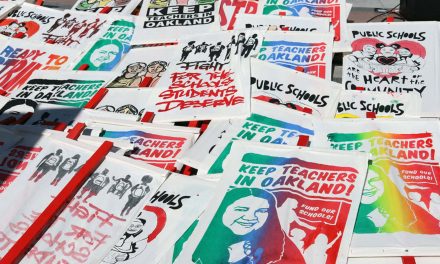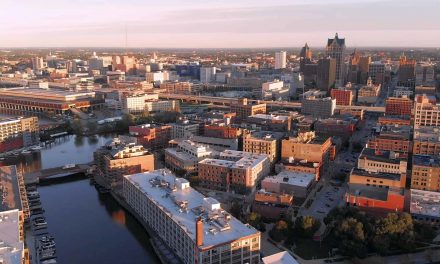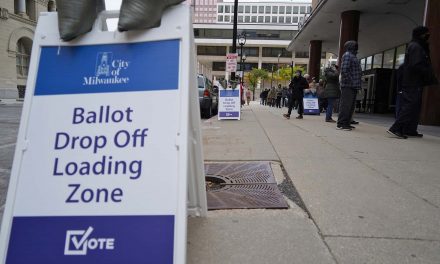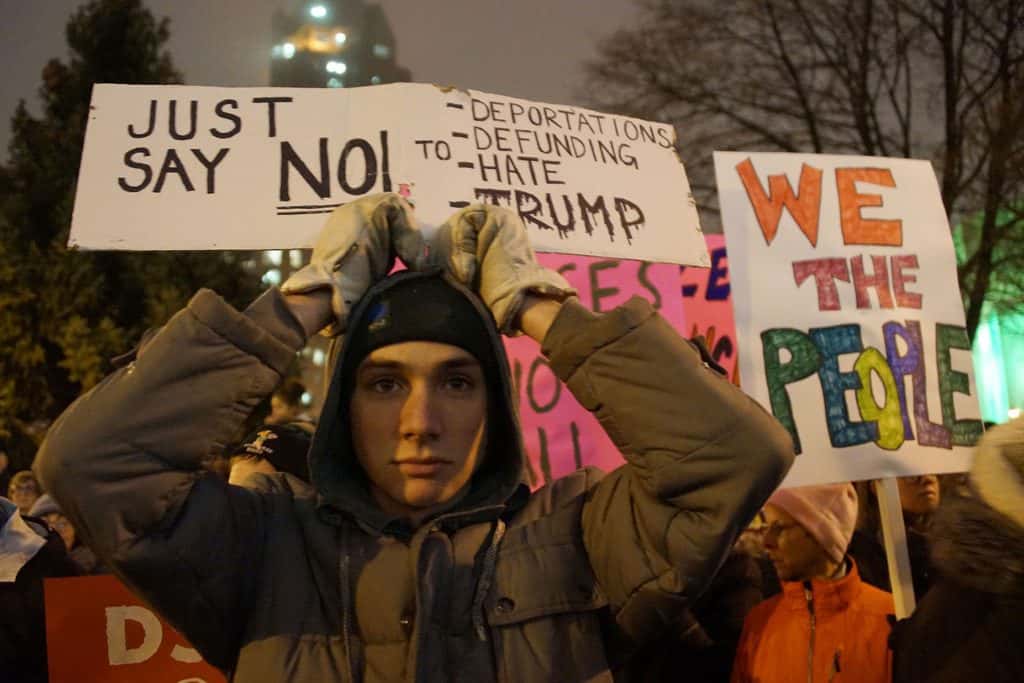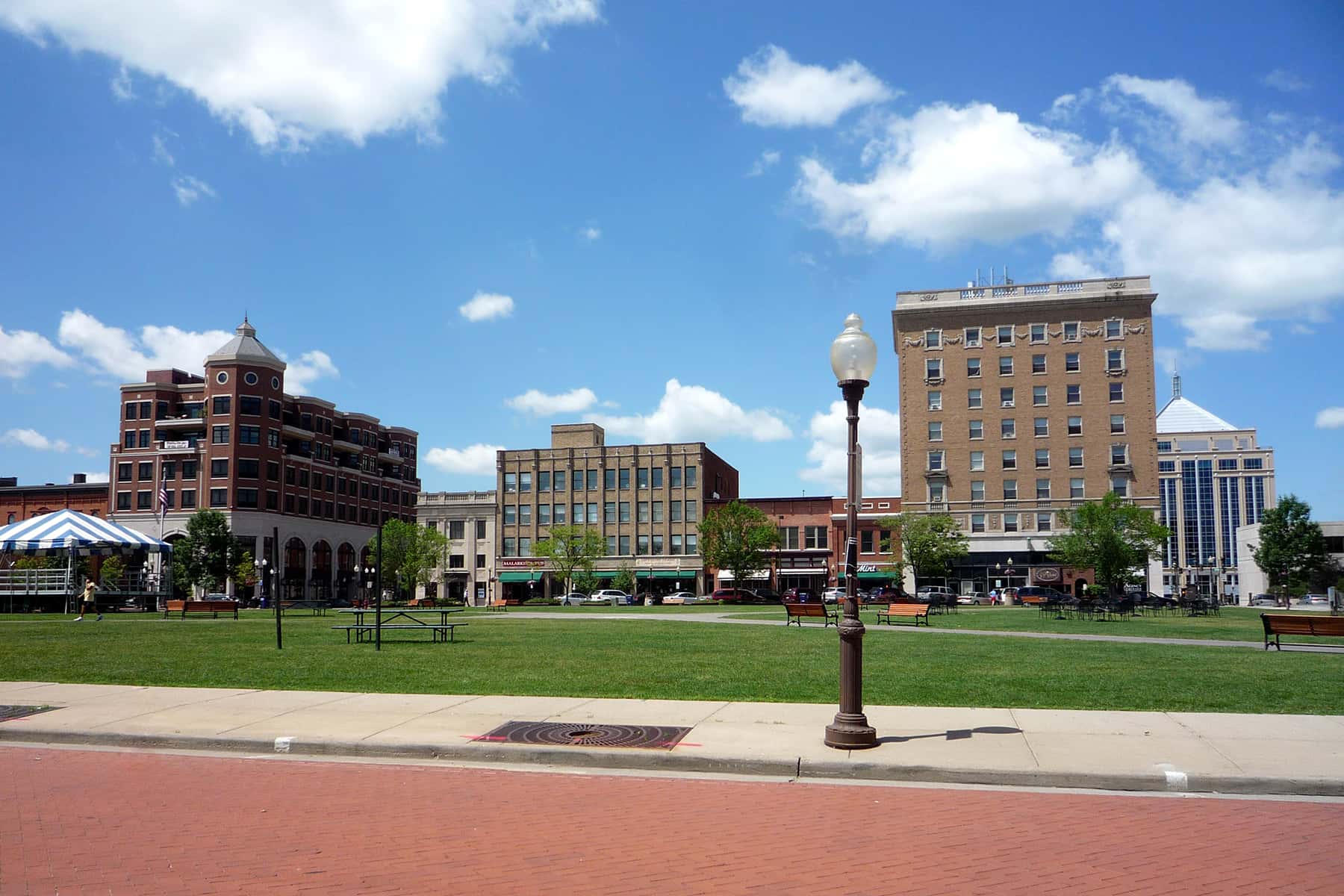
“Hate has no place in America.” So tweeted President Joe Biden, when he announced that he would sign new legislation to address the rising tide of racist hate crimes against people of Asian descent in the United States.
Biden’s claim is, of course, a fantasy – or, perhaps more charitably, an aspiration. Whatever it is, it is certainly not a statement of fact. Hate has plenty of places in America; it has had a comfortable home in the marrow of the nation’s bones for longer than “America” has even existed.
Indeed, the United States would not exist as we know it today – perhaps would not exist at all – were it not for the hate-fueled violent logics and machineries of chattel slavery and settler colonialism, which drove the nation’s economy and shaped its government and borders. Hate molded the United States’ early institutions and was written into its founding documents.
Hate continues to structure both public and private institutions to this day, even if often under the veneer of colorblindness that renders the hate invisible to those who do not want to have to see it. And, of course, hate routinely governs the everyday experiences and fears of people of color as they move about this country; the latest hate crimes legislation signed into law on Thursday wouldn’t be necessary if that was not true.
Again and again for a long and punishing year, since Derek Chauvin murdered George Floyd and the world broke open in protest and rebellion, we have been told that the United States is experiencing a “racial reckoning”.
I confess that I have never quite known what is supposed to be meant by this. Or maybe it would be more accurate to say that I don’t know if the people who believe it to be true know what it means.
Would not a reckoning require an honest and sustained stocktaking of the country’s racist past and racist present? Is that not the very least that it should mean? And would reckoning not, in order to prove meaningful, be a process that includes measures that might remedy the harms caused by racial hatred – systemic and particularized – in the past and present, in pursuit of an actually just future?
I am confused by people talking about our ongoing “racial reckoning” because what I am describing above has quite certainly not happened. Indeed, the evidence is actually everywhere in abundance that White Americans especially, generally speaking, have not been willing to even begin to reckon with hate and racism in any sustained way.
To take one example: public polling has consistently shown that most White Americans have never supported the Movement for Black Lives; the percentage of those that did briefly crept above the 40% threshold after the murder of George Floyd, but support waned quickly and is more or less back to the status quo. Meanwhile, polling in March showed that support for and trust in police had risen substantially over the past year, in an inverse pattern to support for and trust in Black Lives Matter.
Moreover, Republicans’ active refusal to engage in this supposed reckoning has become a dominant through line in our national politics over the past year. Their bleating and hysterical political opposition to the teaching of critical race theory – or really anything about race at all, it seems – in American schools is quite literally nothing more than a refusal to reckon with the ways that racism structures American institutions and society.
Their disingenuous comparison and conflation of antiracist protests last year with the treasonous government coup on 6 January stoked by noted White Nationalist Donald Trump represents still another manifestation. And, of course, nearly a year after the first legislative measures to address the racial terror of American policing were introduced to Congress in Floyd’s name – measures that, at best, would only mildly dull the deadly edge of police terrorism – nothing has actually become law.
Or consider too the ways legislators responded to the recent hate crime legislation that Biden signed last Thursday, which, when it went through the House, was opposed by nearly one-third of House Republicans. Among those opposed to trying to prevent racist hate crimes was Tom Tiffany, whose Wisconsin district several hours north of where I live includes the city of Wausau, which catapulted to infamy recently when The New York Times published a story about the local government’s refusal to deal with racism there.
The flashpoint for the conflict in Wausau centers around a proposed county board resolution that would recognize racial disparities in that community; rhyming well with Biden’s tweet, the resolution was initially titled “No Place for Hate”, but the name was changed because it “was deemed too inflammatory”.
This hardly strikes me as a nation honestly reckoning with much of anything.
Arnold Schlei, a White county supervisor in Wausau who went on the record with The Times for their piece on that city, offered this as an explanation for why he opposed his community’s proposed anti-racist resolution: “You can’t come around and tell people that work their tails off from daylight to dark and tell them that they got White privilege and they’re racist and they’ve got to treat the Hmongs and the coloreds and the gays better because they’re racist. People are sick of it.”
The great American writer James Baldwin often talked about innocence when he talked about racism. More specifically, he had this to say, writing in his classic The Fire Next Time: “I know … and this is the crime of which I accuse my country and my countrymen, and for which neither I nor time nor history will ever forgive them, that they have destroyed and are destroying hundreds of thousands of lives and do not know it and do not want to know it.
“One can be, indeed one must strive to become, tough and philosophical concerning destruction and death, for this is what most of mankind has been best at since we have heard of man. (But remember: most of mankind is not all of mankind.) But it is not permissible that the authors of devastation should also be innocent. It is the innocence which constitutes the crime.”
It strikes me that we are now living in an era defined not so much by “racial reckoning” but more so by the desperate, gasping grasps at reclaiming White innocence from the perils of such a reckoning. Do not teach us or our children honestly about our past or our present, the opponents of racial justice demand. Do not question our allegiance to an openly White Supremacist political leader.
Do not impugn the institutions that uphold White Supremacy and do violence to those not like us. But most of all, they ask that we absolve them of their sins for having made all those demands. Affirm our innocence, they ask. We are not racist, men like Arnold Schlei demand we understand in spite of the evidence.
Schlei’s words against an anti-racist resolution in his city are not those of someone reckoning with the past year, but they are constitutive of an active and widespread refusal to do so. And they also reflect a larger truth: what many White Americans want most desperately is not justice for everyone, including those that do not look or live like them. Rather, what they want is to live with the confidence and affirmation that they are good people in spite of that.
Sіmоn Bаltо
Bоbаk Hа’Еrі
Portions originally published on The Guardian as We are told America is living through a ‘racial reckoning’. Is it really?
Help deliver the independent journalism that the world needs, make a contribution of support to The Guardian.


